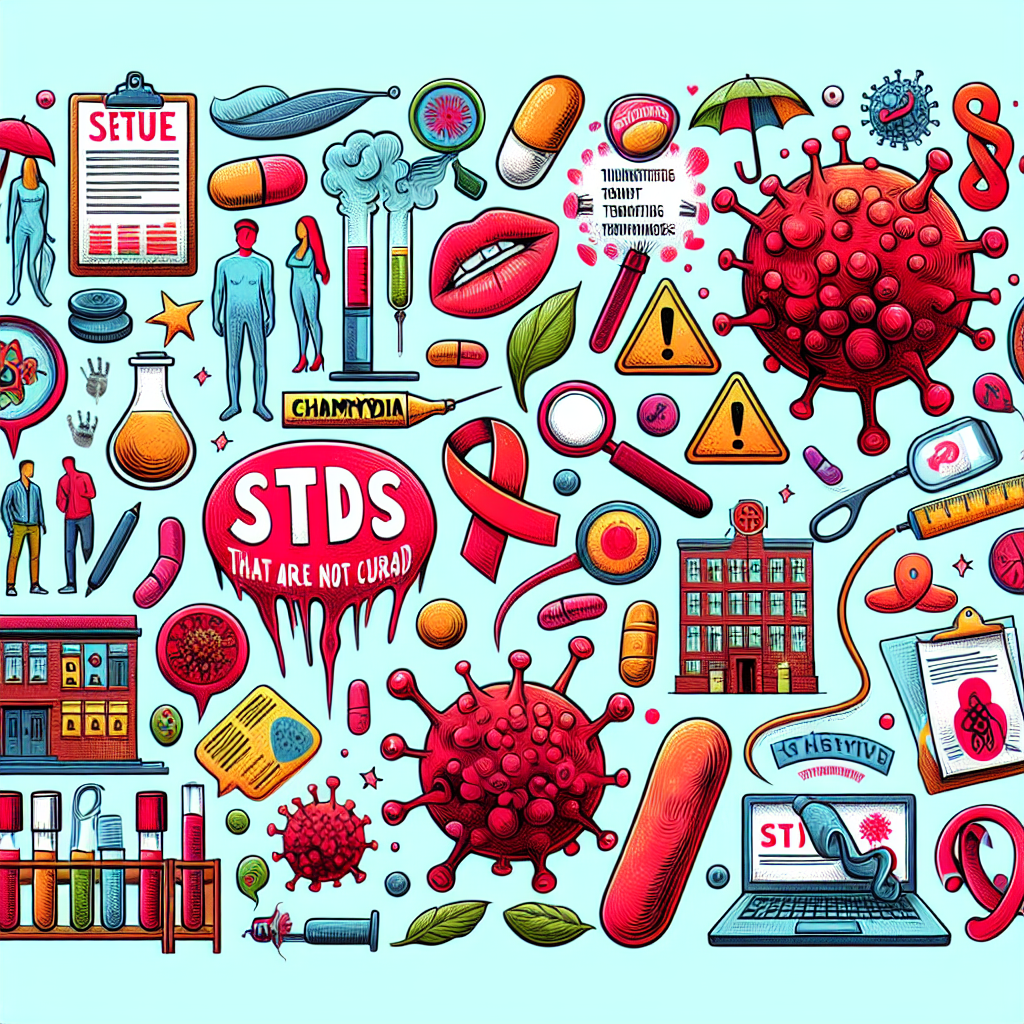Introduction
Imagine navigating through life like a sailor on a calm sea, only to be caught in an unexpected storm. This is how many feel when confronted with the reality of sexually transmitted diseases (STDs). Some STDs can be treated and cured, but others linger, like uninvited guests, resistant to eradication. This article dives deep into the world of incurable STDs, shedding light on what they are, their impact, and how you can stay safe.
- Understanding Incurable STDs
- Common Incurable STDs
- Symptoms to Watch For
- Prevention Methods
- Coping with an Incurable STD
- Key Takeaways
- FAQ
- Conclusion
Understanding Incurable STDs
Incurable STDs are infections that once contracted, cannot be completely eradicated from the body. They become lifelong companions, sometimes lurking silently, other times causing significant health issues. While treatments exist to manage symptoms and reduce transmission risks, the virus or bacteria remains in the system indefinitely.
Common Incurable STDs
Let’s embark on a journey to understand the most common incurable STDs:
- HIV (Human Immunodeficiency Virus): Often depicted as the stormiest of seas, HIV attacks the immune system, rendering the body vulnerable to other infections and diseases. Although antiretroviral therapy (ART) helps manage the condition, there is no cure.
- Herpes Simplex Virus (HSV): Herpes is like a pesky mosquito bite that never truly heals. It causes painful sores around the mouth or genital area. While antiviral medications can reduce outbreaks, the virus remains dormant in nerve cells.
- Human Papillomavirus (HPV): Like an iceberg, much of HPV’s danger lies beneath the surface. Some strains lead to cancer, while others cause genital warts. Vaccines can prevent certain types, but once infected, the virus may persist in the body.
- Hepatitis B and C: These viruses target the liver, causing long-term health complications. Treatments can suppress the virus but cannot eliminate it entirely from the body.
Symptoms to Watch For
Recognizing symptoms early is akin to spotting storm clouds on the horizon. Here are signs linked to some common incurable STDs:
- HIV: Flu-like symptoms in the initial stages, followed by weight loss, fever, and night sweats as the disease progresses.
- Herpes: Painful blisters or sores around the infected area, itching or burning sensations before outbreaks.
- HPV: Genital warts or abnormal pap smear results indicating potential cervical cancer risk.
- Hepatitis B and C: Jaundice (yellowing of the skin and eyes), fatigue, dark urine, and abdominal pain.
Prevention Methods
Navigating through life’s stormy seas without an umbrella invites trouble. Here’s how you can protect yourself:
- Vaccination: Get vaccinated against HPV and Hepatitis B to significantly reduce your risk.
- Safe Sex Practices: Use condoms consistently and correctly. Engage in mutual monogamy or reduce the number of sexual partners.
- Regular Screening: Early detection through regular STD screenings can help manage and prevent further transmission.
- Learn more about STD prevention from CDC
Coping with an Incurable STD
Receiving a diagnosis of an incurable STD can feel like being caught in a relentless storm. However, with proper medical care and lifestyle adjustments, you can navigate these waters more smoothly. Connecting with support groups and professionals can provide you with tools and encouragement needed to manage your condition effectively.
- Seek professional guidance for continuous care and management.
- Get answers to frequently asked questions about STDs.
Key Takeaways
- Incurable STDs remain in the body for life but can be managed with appropriate treatment.
- Common incurable STDs include HIV, herpes, HPV, and hepatitis B and C.
- Regular screenings and safe sex practices are essential for prevention.
- Coping with an incurable STD requires medical care, support, and lifestyle adjustments.
FAQ
Are all STDs incurable?
No, many STDs such as chlamydia, gonorrhea, and syphilis are curable with antibiotics. However, some like HIV and herpes are not curable but manageable.
Can I live a normal life with an incurable STD?
Yes, many people with incurable STDs lead normal lives with the help of treatment and lifestyle changes. Regular medical care is essential to manage symptoms and reduce transmission risks.
How often should I get screened for STDs?
The frequency of screening depends on your sexual activity and risk factors. It’s advisable to consult healthcare professionals for personalized recommendations.
Conclusion
Navigating through life with knowledge and precaution is like sailing with a well-prepared crew. By understanding which STDs are not curable and taking proactive steps towards prevention and management, you can steer clear of stormy waters and maintain your health. Remember, regular screenings and safe sex practices are your best navigational tools.
If you have concerns or need advice on managing STDs, reach out to our healthcare professionals today.











